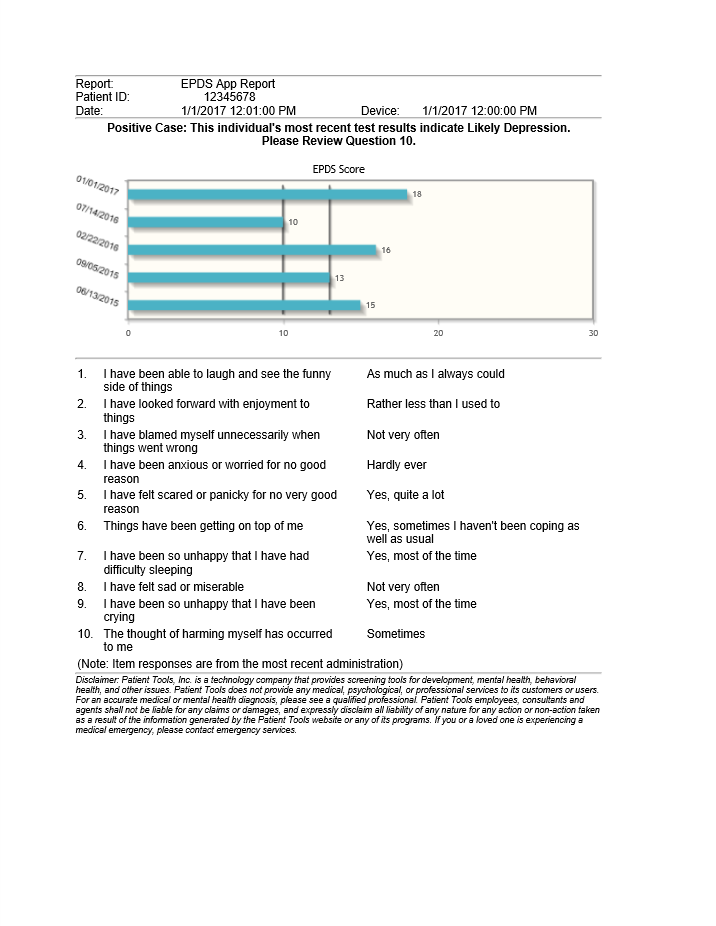|
The EPDS is a 10 question assessment to help identify women with depression during pregnancy, and postpartum (postnatal) periods. Often called, “Baby Blues”, the symptoms can be tearfulness, unhappiness, and include sleep disturbances, low energy, irritability, feelings of guilt, and the inability to enjoy normally pleasant experiences and is the most common complication of childbearing.
The more severe experience of post-partum depression (PPD) can be exhibited by the symptoms described above but generally last more than two weeks, and can be more severe, over-whelming and debilitating. There can also be issues with anxiety about parenthood and the inability to care for an infant, identity crisis, a feeling of loss of control over life, even suicidal ideation. While postpartum depression can occur immediately after birth, the symptoms usually begin at 4 – 6 weeks postpartum. This occurs in approximately 10%– 20% of new mothers.
This brief, patient entered assessment asks the patient to respond to each question regarding the previous seven days. The unique hormonal changes that occur during pregnancy and after childbearing may be a contributor to PPD. The likelihood of developing PPD is greater if the mother developed Baby Blues during pregnancy or after delivery.
Fast and easy to use, the PTI App version of the EPDS is an economical, reliable and validated method to screen. Questions are presented one at a time with a single click answer to advance to the next question. The question format automatically adapts to the respondents device (smartphone, tablet or PC) making the PTI App version of the EPDS ideal for mobile devices.
Using PTI data services, when a questionnaire is complete it is immediately scored electronically and an in-depth report with summary and trending analysis is generated. Results can be printed, loaded into an EMR/EHR and are available as a PDF.
For more information and validity information :
https://www.ncbi.nlm.nih.gov/pubmed/25293375
Or
https://www.babycenter.com/0_postpartum-depression_227.bc
|



